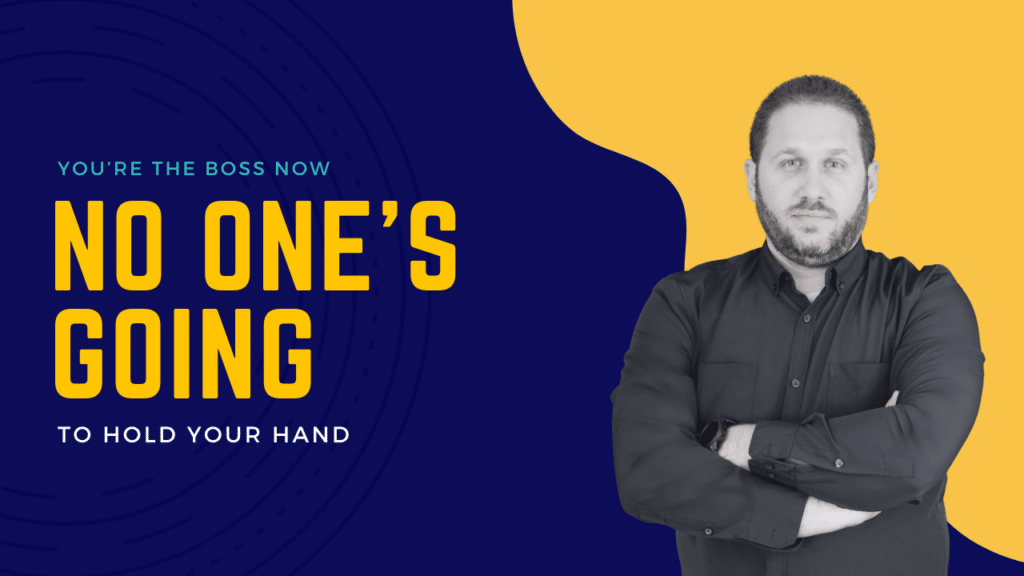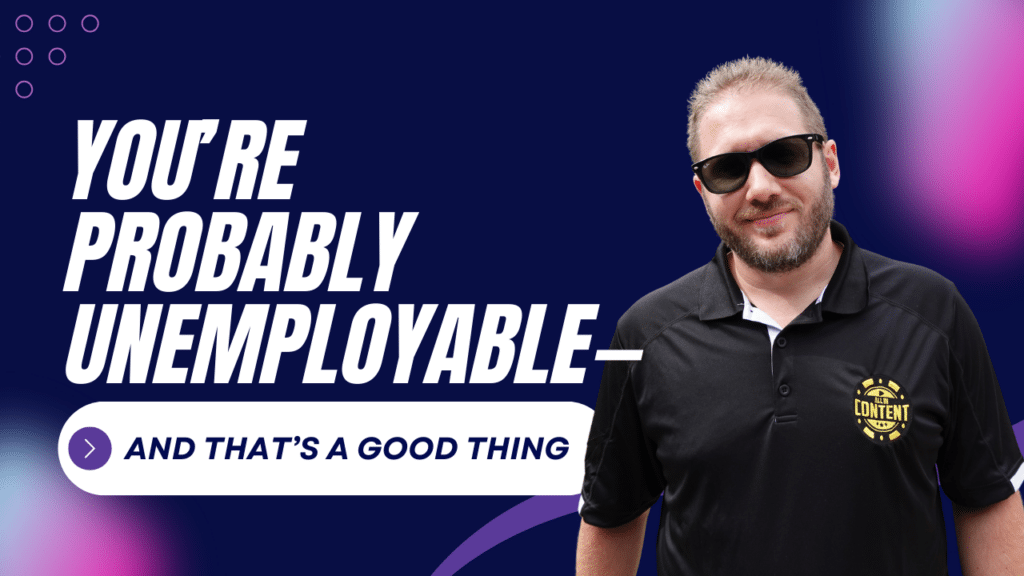If you’ve spent even five minutes on social media, you’ve seen them: the self-proclaimed “coaches” who promise to 10x your income or turn you into a seven-figure entrepreneur in 30 days—if you buy their $10,000 course. Sound familiar?
Here’s the hard truth: most of these so-called experts are full of sh*t. They’ve never built a successful business themselves, and their advice is either regurgitated from someone else or completely useless. If you’re serious about growing, you need to learn how to separate the scammers from the real deal. Let’s dig in.
Why the Coaching Industry Is Full of Fakes
The coaching industry is booming, but not all growth is good. Here’s why it’s crawling with grifters:
- Low barriers to entry: Anyone can slap “coach” on their Instagram bio without proving they know what they’re talking about.
- High demand: Entrepreneurs want shortcuts to success, creating a ripe market for predators.
- Social proof manipulation: Fake reviews, rented luxury cars, and paid followers make it easy to appear credible.
Just because someone looks successful doesn’t mean they know how to help you succeed.
Red Flags of Fake Coaches
If a coach checks any of these boxes, run in the opposite direction:
- No real track record: They can’t point to businesses they’ve built or clients they’ve helped succeed.
- Over-the-top promises: Claims like “6 figures in 6 weeks” are designed to prey on desperation.
- High-pressure sales tactics: If they’re pushing you to “buy now or miss out,” they’re not focused on your best interests.
- Focus on fluff: They talk more about mindset and motivation than actionable strategies.
- Lifestyle flexing: Their pitch is all about their cars, vacations, and watches—not how they’ll actually help you.
How to Spot a Real Mentor
A legitimate coach or mentor isn’t about the hype—they’re about the results. Here’s what to look for:
1. Proven Experience
They’ve built successful businesses themselves or helped clients achieve measurable results.
2. Real Testimonials
Look for detailed testimonials with specifics, not vague statements like “It was great working with them!”
3. Practical Advice
They provide actionable steps, not just motivation or “mindset shifts.”
4. Transparency
They’re upfront about their pricing, methods, and what you can realistically expect from their program.
5. Personal Fit
A great coach aligns with your values, goals, and learning style.
How to Protect Yourself from Scams
Before investing in any coach, course, or program, do your homework:
1. Research Their Background
Google their name, check their LinkedIn, and dig into their business history. Are their claims verifiable?
2. Ask for Case Studies
A reputable coach should be able to share examples of past clients’ success stories.
3. Look for Consistency
Do their online presence, testimonials, and messaging align, or do they feel pieced together?
4. Trust Your Gut
If something feels off—whether it’s their tone, promises, or vibe—listen to that instinct.
Investing in Yourself Without Getting Burned
The right coach can accelerate your growth and save you years of trial and error. Here’s how to find one worth your time and money:
- Start small: Test the waters with a free resource, webinar, or low-cost offer before diving into a high-ticket program.
- Talk to their clients: Reach out to past or current clients to hear about their experiences.
- Focus on ROI: Evaluate whether the potential outcomes justify the investment.
Remember, good coaching is an investment—not an expense.
FAQs
Why are there so many fake coaches out there?
The coaching industry has low entry barriers, high demand, and minimal regulation, making it easy for scammers to thrive.
How do I know if a coach is legit?
Look for a proven track record, detailed testimonials, and practical advice. Avoid anyone who relies on hype, pressure, or vague claims.
What’s the best way to vet a potential coach?
Research their background, ask for case studies, and talk to past clients. Don’t be afraid to dig deep before making a decision.
Should I ever invest in a high-ticket coaching program?
Yes, but only if the coach has a proven track record and the program offers clear, actionable steps that align with your goals.
What if I realize I’ve been scammed?
Cut your losses, learn from the experience, and move on. Use it as motivation to be more discerning in the future.
How do I find a mentor without falling for scams?
Look for experienced professionals in your industry, attend networking events, or join entrepreneurial communities where genuine connections are made.
Conclusion: A Personal Note from Chris
When I started my entrepreneurial journey, I almost fell for a few of these so-called “gurus.” The flashy marketing, the big promises—it all sounded tempting. But something didn’t sit right, and I’m glad I trusted my gut. Instead, I found mentors who actually walked the walk—people who didn’t just sell advice but had real results to back it up.
Here’s what I’ve learned: the right coach can change your life, but the wrong one can waste your time and money. Don’t let desperation cloud your judgment. Do your research, ask tough questions, and make sure any investment you make aligns with your goals.
There are plenty of legit mentors out there—don’t settle for the snake oil salesmen. You deserve better. And when you find the right guide, the growth you’ll experience will be worth every penny.
You’ve got this. Stay smart, stay focused, and keep building your dream.








